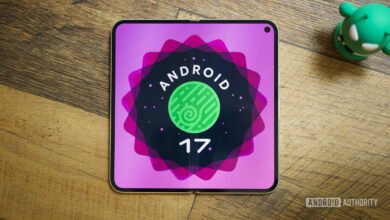Google Pixel 10 Pro XL vs. Galaxy S25 Ultra: Which Android Phone Wins?

▼ Summary
– The Google Pixel 10 Pro XL features a cleaner software experience with less intrusive features compared to Samsung’s OneUI, plus seven years of OS updates.
– Its camera system excels in computational photography and AI tools like Pro Res Zoom, making it highly forgiving for users who prioritize convenience over manual control.
– The Pixel 10 Pro XL is more comfortable to hold with a design that reduces its footprint and includes a magnetic accessory system called PixelSnap.
– The Samsung Galaxy S25 Ultra offers a feature-rich software experience with extensive customization options and S Pen integration, also promising seven years of updates.
– It has the best smartphone display with an anti-glare coating and superior performance due to the Qualcomm Snapdragon 8 Elite chipset, ideal for power users.
Choosing between the Google Pixel 10 Pro XL and the Samsung Galaxy S25 Ultra is no simple task, as both devices represent the pinnacle of Android smartphone engineering. Each offers a distinct blend of hardware excellence and software innovation, making the decision highly personal depending on user priorities and preferences.
For those who value a streamlined and intuitive user experience, the Pixel 10 Pro XL stands out. Google’s cleaner approach to software provides a less cluttered interface compared to Samsung’s OneUI, allowing for smoother navigation and quicker access to the latest Android features. The integration of the Tensor G5 chipset ensures that AI-powered tools like Magic Cue operate seamlessly, offering proactive suggestions based on your activity. Google also commits to seven years of OS updates, ensuring the device remains secure and relevant well into the future.
Photography enthusiasts will appreciate the Pixel’s computational photography strengths. While it may not match the Galaxy in sheer number of lenses, the Pixel 10 Pro XL’s camera system excels through intelligent software enhancements. Features like the 100X Pro Res Zoom use AI to reconstruct fine details in distant subjects, often outperforming competitors in side-by-side tests. Real-time tools such as Camera Coach assist with framing and settings, making it exceptionally user-friendly for both casual and serious shooters.
Ergonomics and daily usability further distinguish the Pixel. Its design incorporates flat edges and subtle curves, making it more comfortable to hold than the sharper, boxier Galaxy S25 Ultra. The inclusion of PixelSnap magnetic accessories enhances functionality, allowing for easy attachment of grips and stands without third-party hardware. At $100 less than Samsung’s flagship, it also represents strong value.
On the other hand, the Samsung Galaxy S25 Ultra appeals to users who prefer a feature-packed software environment. Samsung’s kitchen sink approach offers extensive customization, from home screen widgets to S Pen integration, providing a highly personalized experience. Like Google, Samsung guarantees seven years of software support, adding long-term value to its premium offering.
Display quality is another area where the Galaxy shines. Its 6.8-inch AMOLED LTPO panel is among the best available, with a glare-free coating that significantly improves visibility in bright conditions. This makes it ideal for outdoor use, whether browsing, watching videos, or composing photos.
Performance is a key differentiator for power users. While the Tensor G5 in the Pixel handles AI tasks admirably, the Qualcomm Snapdragon 8 Elite chipset in the Galaxy S25 Ultra delivers superior raw power and efficiency. This makes it the better choice for intensive gaming, multitasking, and running demanding applications without compromise.
Ultimately, the choice between these two Android giants comes down to individual needs. The Pixel 10 Pro XL excels in software simplicity, computational photography, and everyday comfort, while the Galaxy S25 Ultra leads in display technology, customization, and peak performance. Both are exceptional devices, each with a compelling set of strengths.
(Source: ZDNET )




